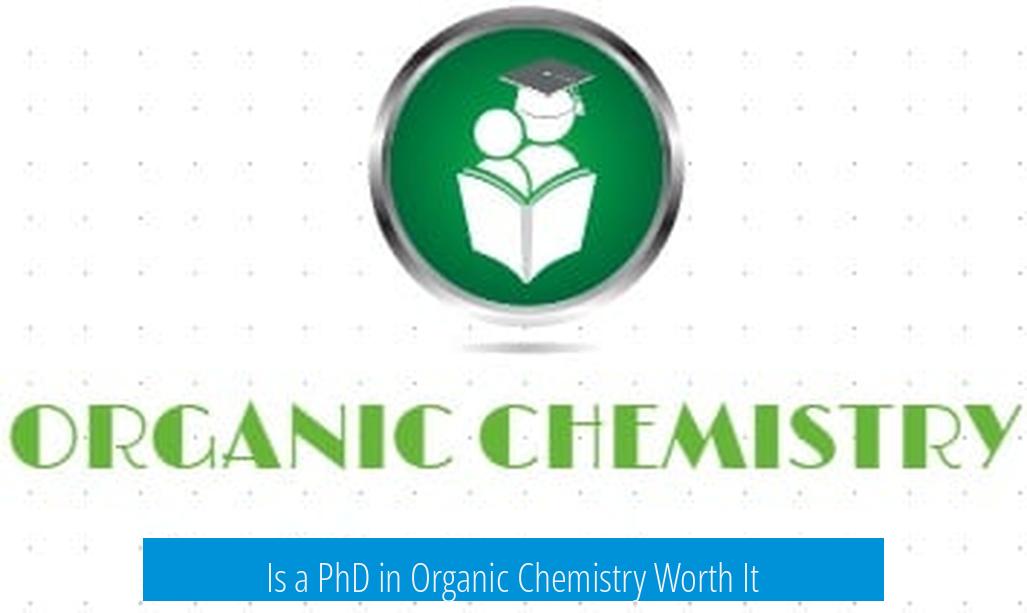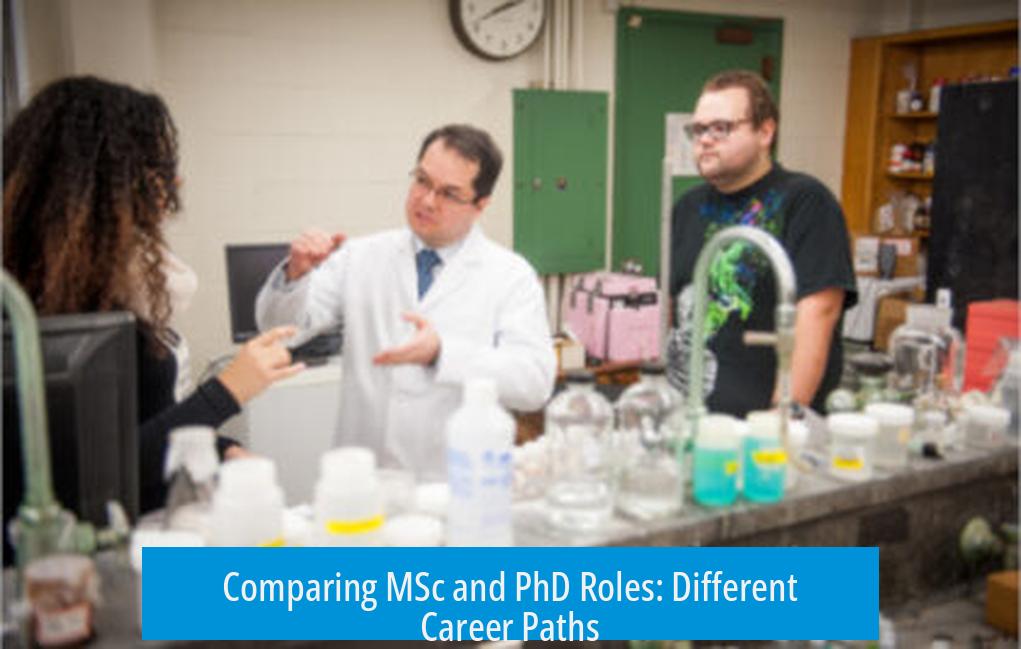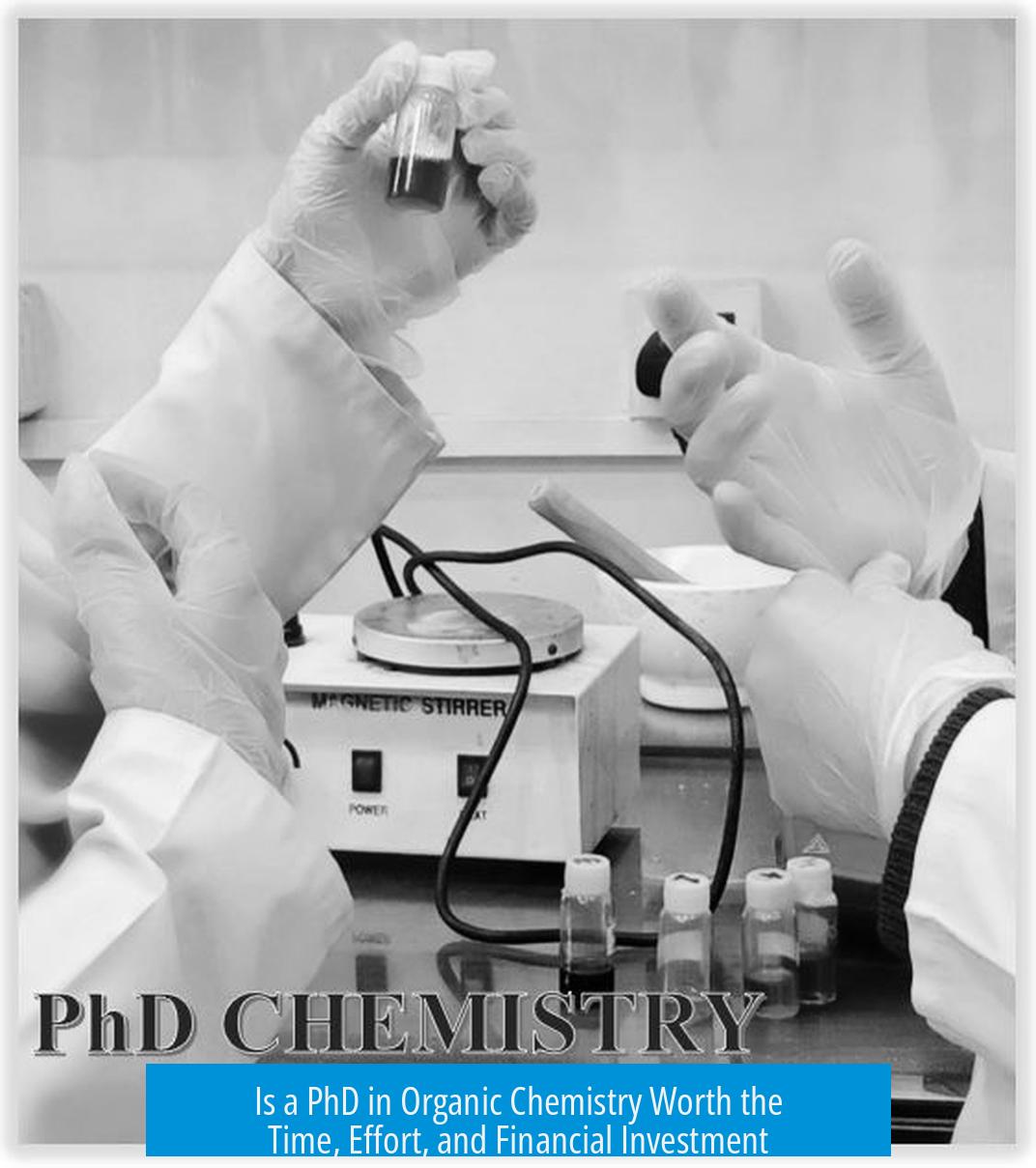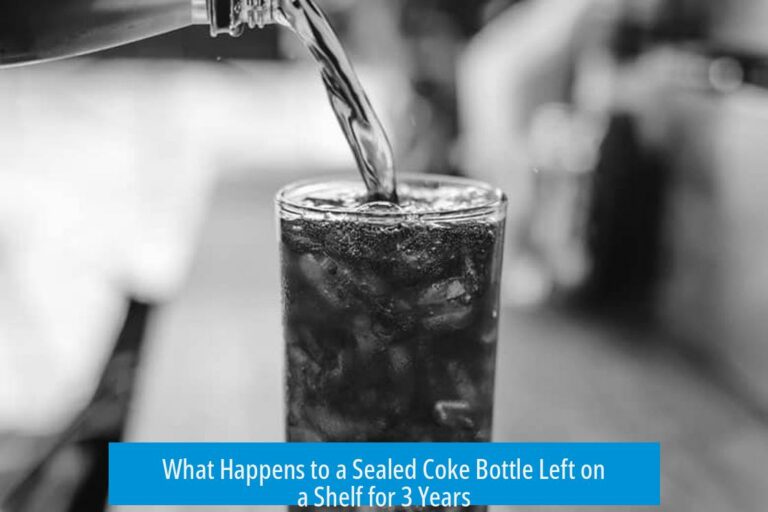Is a PhD in Organic Chemistry Worth It?

Pursuing a PhD in organic chemistry is worth it primarily if you have a strong passion for research, aim to lead scientific projects, or wish to secure academic positions—despite the challenges and competitive job market. For many, an MSc degree offers a faster, financially sensible route into industry roles, sometimes providing comparable career success.
Understanding the PhD Experience in Organic Chemistry
The journey through graduate school is intense and demanding. It involves long hours and frequent failures which are part of the learning and discovery process. A typical PhD student often faces persistent setbacks while making incremental progress on complex problems. The position is also paid, although wages are modest and may feel like “starvation wages” over several years. This hard work builds expertise and independence in designing and leading research projects.
- PhD involves five or more years of focused research.
- Consistent problem solving and setbacks are expected.
- Paid, but with relatively low income compared to industry roles.
- The role transitions from executing experiments to designing research strategies.
Comparing MSc and PhD Roles: Different Career Paths

An MSc graduate typically fills roles akin to lab technician positions, focusing on executing experiments and supporting projects. In contrast, PhD holders often take on leadership responsibilities, such as managing projects, supervising team members, and driving research directions. The distinction is important when considering long-term career goals.
| Degree | Typical Role | Responsibilities |
|---|---|---|
| MSc | Lab technician / Senior Scientist | Conduct experiments, support research, apply chemistry skills in industry |
| PhD | Project leader / Lab head | Design research projects, lead teams, publish findings, innovate |
Geographic and Apprenticeship Influences on Degree Value
Employment opportunities and roles differ internationally. Countries with strong apprenticeship traditions—such as Switzerland and Germany—place high value on hands-on training. Here, BSc and MSc degrees without practical experience may be less competitive. In other regions, BSc/MSc holders often fill lab positions directly. This impacts the practical worth of graduate degrees across global job markets.
- In strong apprenticeship countries, practical experience is as crucial as degree level.
- MSc might be less valued if it lacks independent lab work experience.
- In other countries, MSc graduates often obtain stable lab jobs.
Passion, Workload, and Financial Considerations
Pursuing a PhD demands sustained passion for organic chemistry research. The workload is heavy, often requiring long hours including weekends. Routine activities often include setting up new reactions or purifying compounds. For those aiming at academia, a PhD is mandatory.
In contrast, MSc graduates enter industry sooner and can progress financially faster. Although starting salaries may be lower than PhD graduates, after three years on the job, MSc professionals often reach comparable salary levels due to continuous earnings and promotions.
- PhD programs require patience and passion for discovery.
- Long working hours and low pay are typical drawbacks.
- MSc graduates start earning earlier, gaining valuable experience.
- Salary parity often occurs within a few years for MSc holders.
Dispelling Myths about MSc Holders in Industry
Contrary to stereotypes, many senior scientists in pharmaceutical or chemical industries hold only a master’s degree. They earn respect based on experience and results rather than degree level alone. Labeling MSc holders as “mere lab technicians” misrepresents the diversity of roles and career successes found across sectors.
Examples include:
- Senior medicinal chemists with MSc degrees leading drug design efforts.
- Experienced MSc professionals managing projects in large pharma companies.
Academia vs. Industry: The Reality of Career Paths
Whether to pursue a PhD heavily depends on your career goals. A PhD is essential for becoming a professor or leading major research programs. However, academic positions are scarce and highly competitive.
In industry, the demand for PhDs varies, and many roles are well suited for MSc graduates. Nevertheless, PhDs often have more opportunities for career advancement, though the initial job market may be challenging.
Duration and Opportunity Costs of the PhD
The median time to complete a PhD often approaches six years. This extended duration carries significant opportunity costs, including lost wages, delayed savings, and postponed career growth compared to entering the workforce earlier with an MSc.
Key points:
- PhD programs typically last 5–6 years or more.
- During this time, salaries are low relative to industry careers.
- Delayed entry into the workforce affects long-term earnings and progression.
Real-World Outcomes: MSc May Surpass PhD in Some Cases
Individual career trajectories vary. There are cases where MSc holders achieve more rapid career advancement and stability compared to PhD graduates who struggle to find R&D jobs post-PhD.
Example scenario:
- MSc graduate promoted within a major pharmaceutical company.
- PhD graduate faces unemployment or moves to non-research roles.
Expanding Career Horizons Beyond Traditional Organic Chemistry
Organic chemists can enhance their employability by branching into allied disciplines. Combining organic chemistry knowledge with skills in analytical techniques, biomaterials, or chemical manufacturing opens alternative job markets.
Notable alternative paths include:
- Pharmaceutical and biotech industries.
- Large chemical manufacturers like Sigma-Aldrich or 3M.
- Flavor and fragrance industries, requiring organic expertise without PhD.
- Fields involving analytical chemistry and organic materials, which have strong job prospects.
Work-Life Balance and Job Stability Concerns
Academic and PhD lab work often leads to poor work-life balance. Transitioning from academia to industry might improve quality of life but involves trade-offs in research freedom.
Geographic flexibility is limited. Organic chemists typically find suitable positions in a handful of locations. Smaller companies or departments frequently face layoffs reducing job stability.
- Laboratory roles can be physically and mentally demanding.
- Industry jobs may offer better compensation and hours.
- Job turnover in smaller firms is common, affecting security.
- Geographic relocation might be necessary for career opportunities.
Mental Health and Personal Circumstances Influence Decisions
Mental health challenges, such as those intensified by the pandemic, affect the feasibility of prolonged PhD programs. Some students opt to leave PhD programs early and enter industry with an MSc plus experience.
Good industry jobs for MSc holders with experience are increasingly available in current markets. Achieving financial independence earlier is a significant factor for many.
Advice for Prospective PhD Candidates and Graduates
Considering a PhD requires realistic planning. Having backup options if research fails is crucial. Expect more opportunities for leadership and progression with a PhD, but recognize the risks.
- Plan for industry roles alongside academic aspirations.
- Develop diverse skills beyond core organic chemistry.
- Understand that PhD roles focus more on design and planning than bench work.
- Maintain flexibility to adapt career paths if needed.
Key Takeaways
- A PhD in organic chemistry is necessary for academic careers and research leadership roles.
- PhD programs require long commitment, involve opportunity costs, and include demanding workloads.
- MSc graduates can achieve successful and respected careers in industry, often with better initial financial outcomes.
- Job market dynamics vary by geography, industry demand, and apprenticeship traditions.
- Expanding skill sets into allied fields improves career prospects and employability.
- Mental health and personal priorities strongly influence the decision to pursue or leave a PhD.
- Having backup plans and realistic expectations enhances career resilience.
Is a PhD in Organic Chemistry Worth It?
In a nutshell: a PhD in organic chemistry is worth it if you’re passionate about research or aiming for leadership roles in academia or industry. But if you want to jump straight into a stable industry job with good pay, a master’s might serve you better. Sounds straightforward, right? Well, let’s unravel the story a bit.
Imagine yourself stepping into graduate school. One seasoned fifth-year grad student sums it up perfectly: “Grad school is the only place you get experience and get paid while consistently failing.” Harsh, yet hilariously accurate. It captures the tough love nature of the PhD grind. You work long hours, deal with failed experiments, repeat tedious reactions, and yes, turn failures into stepping stones—if you hang in there.
Graduate School: The High-Stakes Lab Game
Graduate school isn’t for the faint of heart. You’re paid (sometimes below starvation wages) to *fail*, experiment endlessly, and slowly inch toward scientific breakthroughs.
For organic chemists, long hours are standard. Setting up a new reaction, making substrates, running columns—repetitive but crucial steps that sharpen your skills. It’s tiring, but those who thrive usually have a burning passion for uncovering molecular mysteries.
PhD vs MSc: Who Does What?
Here’s the blunt reality. MSc holders typically take lab technician roles. If you earn a PhD, you’re looked upon as a project leader or lab head—steering the research ship, not just rowing it.
But this division doesn’t always paint the whole picture. In countries like Switzerland and Germany, where apprenticeships are common, a BSc or MSc without strong hands-on training can feel like showing up to a symphony without an instrument. You don’t get the independence or practical skills valued there. In other places with fewer apprenticeship traditions, you might find BSc and MSc holders happily running the lab tech show.
So, the impact of your degree can depend on where you’re employed. Geographic differences can either boost or limit your employability based on hands-on experience and training traditions.
Career Goals Matter: Academia or Industry?
If you dream of becoming a professor, the PhD is non-negotiable. Academia demands it, no shortcuts. But hold your horses—academic chemistry jobs are extremely competitive and quite scarce these days. This might be the hardest reality check an aspiring researcher faces.
In industry, the picture changes. Getting a master’s degree, then diving straight into pharma or chemical manufacturing, can get your career rolling faster. MSc graduates often start earlier, building experience and savings years before their PhD peers graduate. In fact, after about three years on the job, their salaries can equal or surpass new PhD grads. Real money in the bank beats theoretical salary heads-up, right?
Busting the MSc Myths
There’s a stubborn myth floating around: “MSc is just for lab techs.” Ignore it. Many respected senior scientists in big pharma hold only master’s degrees. These professionals lead important medicinal chemistry and drug design projects.
One personal example? A chemistry MSc graduate — my very own sister — has a spectacular career in big pharma. Meanwhile, despite a PhD, I struggled for years to find an R&D job and ended up in sales. That’s life, folks. Titles don’t guarantee success. Circumstances, networks, and sometimes luck influence your career trajectory.
The Price of a PhD: Time and Opportunity Costs
Here’s a chilly fact: The median time to finish a PhD is nearly six years, and that’s only increasing. Factor in these years of forgone full-time income, savings, and career growth you’re missing out on. You could be climbing the career ladder and stacking up real paychecks instead.
The opportunity cost is significant. So if you’re not deeply motivated, the time and energy spent might not pay off. Plus, the workload of organic chemistry research means long, grueling hours that test your mental stamina. The pandemic’s impact on the mental health of PhD candidates is also an important factor. Some have wisely chosen to “master out” early and still land great jobs in industry by combining a master’s degree with solid experience.
Expanding Horizons: More Than Just Pharma and Academia
Don’t box yourself into one corner. Organic chemistry skills mix beautifully with fields like biomaterials, mass spectrometry, and analytical chemistry—tools ranging from TEM imaging to mass spec are all marketable skills that boost your employability.
Pharma may hog the spotlight, but there are other avenues. Companies like SigmaAldrich, 3M, and Dupont/Chemours offer roles suited for organic chemists. Industries like organic materials and analytical chemistry often provide more stable job prospects. Ever considered the flavor and fragrance industry? It welcomes organic chemists, often without requiring a PhD.
Work-Life Balance: The Hidden Cost
Passion for science aside, reality bites. The payment versus work-life balance often drains stamina. Many PhD-trained chemists start in academia, endure long lab hours, and eventually switch to industry for a more balanced life—even if it means shifting their career goals.
Additionally, your job options might geographically limit you to only a handful of locations. Small or mid-sized companies can close or relocate, leading to layoffs that are not uncommon in this field. Flexibility and readiness for change are key survival tools.
Advice for Aspiring PhD Candidates: Think Twice, Plan Ahead
If you’re pondering a PhD, do so with eyes wide open. Have a backup plan. Research doesn’t always pan out. There are more opportunities for progression with a PhD, but also a steeper uphill battle and more risk. An MSc often gives you a career with more stability, less uncertainty.
In a PhD role, your job evolves to designing reactions rather than just carrying them out. You lead experiments, mentor others, and manage projects, which can be satisfying if leadership excites you.
Wrapping It Up: Who Should Pursue a PhD?
- If you love research and dream of leading projects—go for the PhD. It demands dedication, patience, and long hours but rewards with leadership roles and academic doors that don’t open to others.
- If you want financial stability and to enter the workforce earlier—consider an MSc. Industry respects master’s holders and offers opportunities for well-paid, respected careers without the prolonged grind.
- Consider your location and local industry culture. Apprenticeship traditions and hands-on experience vary, affecting job prospects for MSc and PhD holders differently.
- Broaden your skillset. Dive into analytical methods, biomaterials, or flavor chemistry to enhance employability.
- Plan for mental health and work-life balance. The journey is tough. Know when to switch paths or seek alternatives.
In the end, the question isn’t simply “Is a PhD in organic chemistry worth it?” but rather, “Is the PhD worth it for *your* career goals, lifestyle, and passion?” If the answer is yes, prepare for a rewarding, challenging, and sometimes frustrating adventure. If not, rest assured the MSc route can offer a fulfilling and financially sound career without the bruises of a long PhD journey.
Q1: Is a PhD necessary to have a leadership role in organic chemistry research?
A PhD often leads to project leader or lab head roles. MSc holders tend to work as lab technicians. Leadership positions usually require a PhD, especially in research settings.
Q2: How does job market demand affect the value of a PhD in organic chemistry?
Academic jobs for PhD chemists are limited and competitive. Industry demand varies. Your career goals must guide the decision to pursue a PhD or stop at a master’s.
Q3: Does a PhD guarantee better financial outcomes than an MSc?
MSc graduates start working sooner and can catch up with PhD peers financially after a few years. The PhD path involves several years of low pay and opportunity costs.
Q4: Are there well-respected roles for MSc holders in the pharma industry?
Yes. Many senior scientists in pharma hold master’s degrees. The idea that MSc graduates only do technician work is not accurate in many companies.
Q5: What alternative career paths exist for organic chemists besides academia and pharma?
Options include analytical chemistry, organic materials, flavor industry, and chemical manufacturing companies. Combining skills can improve job prospects without needing a PhD.





Leave a Comment